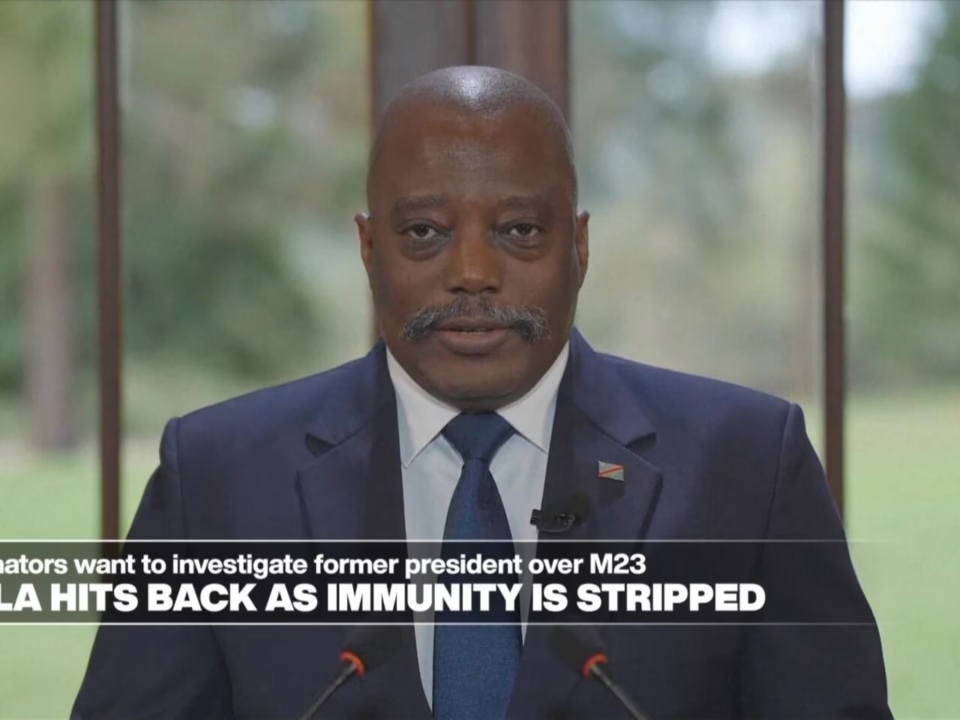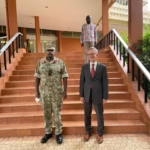In a dramatic escalation of the Democratic Republic of Congo’s deepening political crisis, the M23/Allied Revolutionary Coalition (ARC) rebel alliance has announced the arrival of former President Joseph Kabila in its strongholds. The rebels confirmed his presence in what they described as “liberated zones” under their control—a move that could further inflame tensions across the volatile eastern region.
In a statement released Tuesday, the ARC/M23 described Kabila as a “respected and respectable former head of state and senator for life,” hailing him as “the soldier of the people.” The group declared, “Long live the revolution,” casting his presence as a symbolic endorsement of their uprising against the government of President Félix Tshisekedi.
The announcement comes just days after the Congolese Senate voted to lift Kabila’s immunity, paving the way for his prosecution on multiple charges including treason, participation in an insurrectional movement, war crimes, and crimes against humanity. The Senate’s decision followed formal requests by the Justice Ministry, which accused Kabila of being a key backer of the M23 insurgency.
In a defiant response, Kabila vowed to “actively participate in the liberation of the country,” signaling a clear break from the political establishment and an open embrace of the armed rebellion.
While the government has yet to issue an official response to Kabila’s reported arrival in Goma, senior sources have described the act as “open rebellion” and “a betrayal of the Republic.”
Justice Minister Constant Mutamba warned that Kabila’s actions undermine the peace process and the authority of the state. Government insiders say Kinshasa is weighing both legal and military responses, including the acceleration of asset seizures and regional diplomatic efforts to isolate the former president.
According to sources, Kabila attempted to cross into the DRC via Uganda but was blocked by Ugandan President Yoweri Museveni. Uganda, a regional military and trade partner of the Tshisekedi government, reportedly cited concerns that Kabila’s crossing would undermine joint operations against the ADF rebel group and strain growing trade ties with eastern Congo.
Museveni has long been suspicious of Kabila, accusing him of allowing the ADF’s rise during his presidency. His son, Gen. Muhoozi Kainerugaba, recently warned publicly: “I will never allow Joseph Kabila to become President of DRC again.”
Denied entry via Uganda, Kabila is believed to have taken alternate routes to reach Goma, now under significant rebel control and serving as a political base for the M23/ARC leaders.
Kabila’s emergence in rebel territory is seen by many analysts as a high-risk attempt to reclaim political relevance through an alliance with insurgent forces. His recent co-signing of an opposition declaration calling for the withdrawal of all foreign troops from Congolese soil was widely interpreted as a veiled criticism of Uganda’s presence in the region.
Observers warn that his actions could derail fragile peace initiatives and deepen instability in the Great Lakes region. His alignment with the M23/ARC—designated as a terrorist group by Kinshasa—marks the most profound rupture in Congolese politics since he stepped down in 2019.
As the DRC braces for the fallout, Kabila’s return to the spotlight via rebel-held territory may prove to be the defining—and possibly final—act of his political career.



